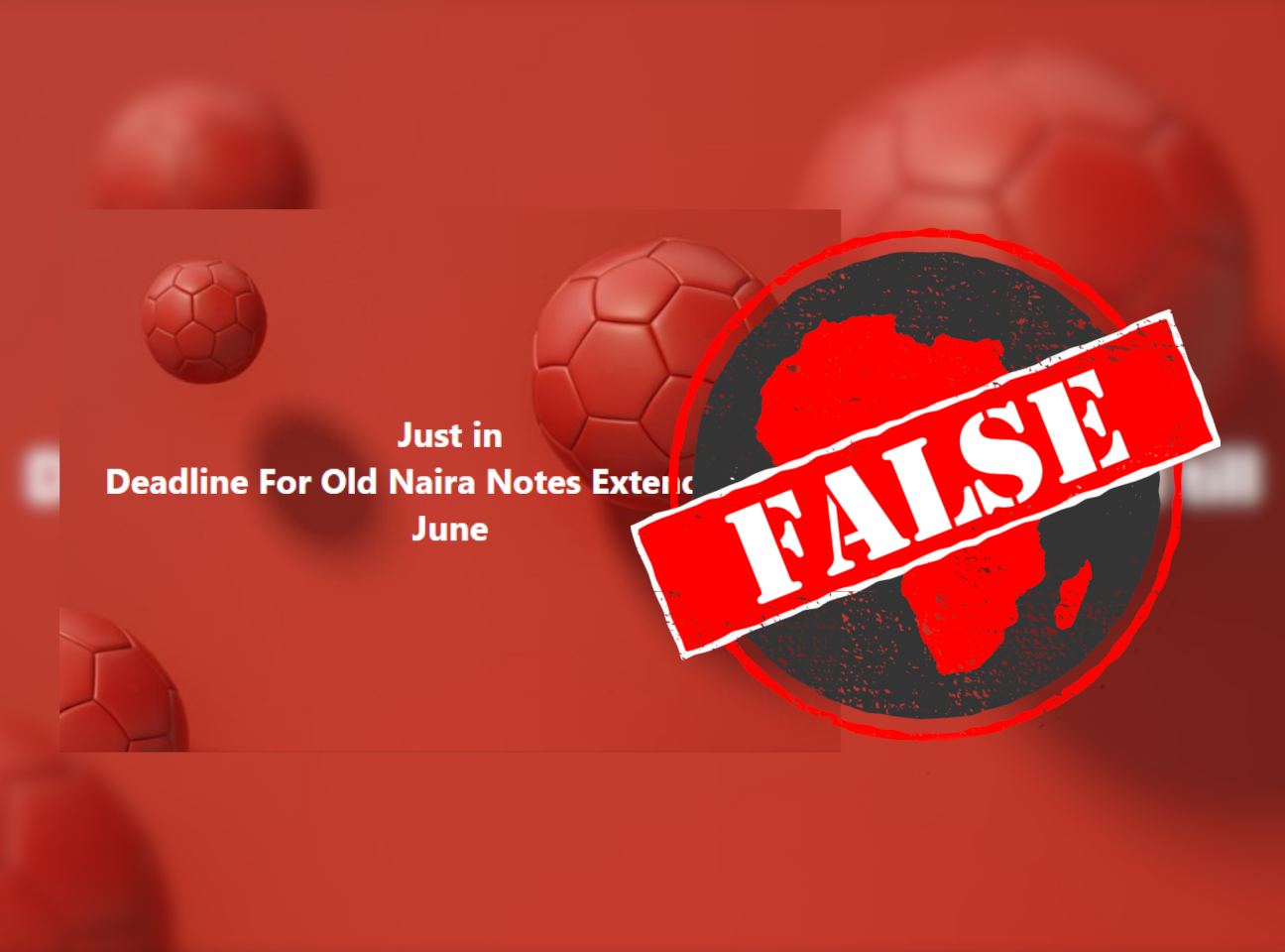IN SHORT: The Nigerian senate has asked the country’s central bank to extend how long old naira notes would be in circulation. But despite many claims on social media, the bank has not announced whether it’s granting the extension, and the deadline for the withdrawal of the old notes remains 31 January 2023.
“Just in: Deadline For Old Naira Notes Extended till June,” reads a Facebook post posted on 29 December 2022.
On 26 October, Godwin Emefiele, the Central Bank of Nigeria (CBN) governor, announced plans to redesign the country’s N200, N500 and N1,000 notes.
He said the redesign was geared towards tackling problems linked to inflation, currency counterfeiting, insecurity, and other issues.
Emefiele said Nigerians had till 31 January 2023 to exchange their old naira notes for the new notes.
Following the redesign, the CBN introduced new cash withdrawal limits. They said the maximum cash withdrawal over the counter would be N100,000 a week for individuals and N500,000 a week for corporate organisations.
The CBN later reviewed this limit, and said individuals could instead withdraw N500,000 cash weekly and corporates up to N5 million.
In late December 2022 the senate asked the CBN to extend the deadline for withdrawing the old currency, from 31 January 2023 to 30 June.
The claim that the extension had been confirmed was also repeated in other Facebook posts.
But is this official? We checked.

CBN yet to implement lawmakers’ directive
The mainstream Nigerian media reported that the senate had asked CBN to extend the withdrawal deadline, but it hasn’t reported whether the CBN confirmed the extension.
In November 2022, the CBN tweeted that old naira notes remained legal tender until the deadline of 31 January 2023 but they haven’t released any statement about an extension.
The claims on social media can’t be confirmed.
Republish our content for free
For publishers: what to do if your post is rated false
A fact-checker has rated your Facebook or Instagram post as “false”, “altered”, “partly false” or “missing context”. This could have serious consequences. What do you do?
Click on our guide for the steps you should follow.
Publishers guideAfrica Check teams up with Facebook
Africa Check is a partner in Meta's third-party fact-checking programme to help stop the spread of false information on social media.
The content we rate as “false” will be downgraded on Facebook and Instagram. This means fewer people will see it.
You can also help identify false information on Facebook. This guide explains how.


Add new comment